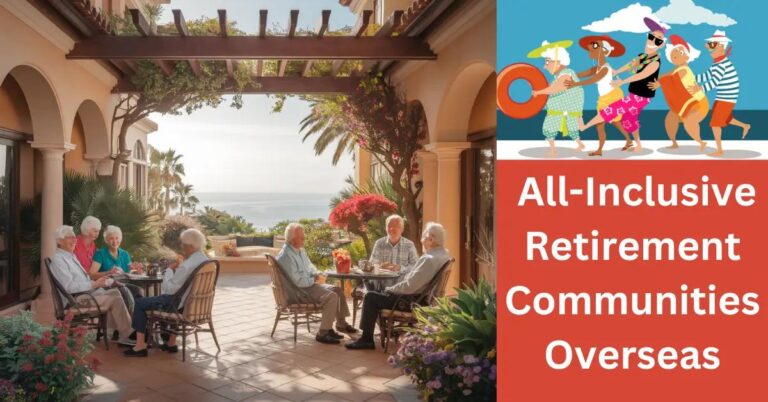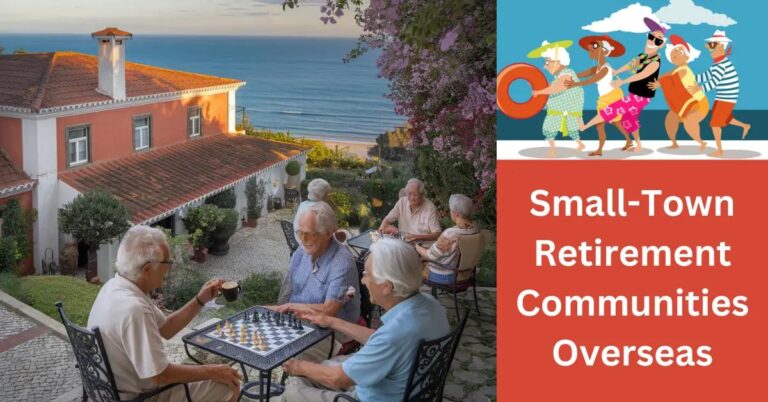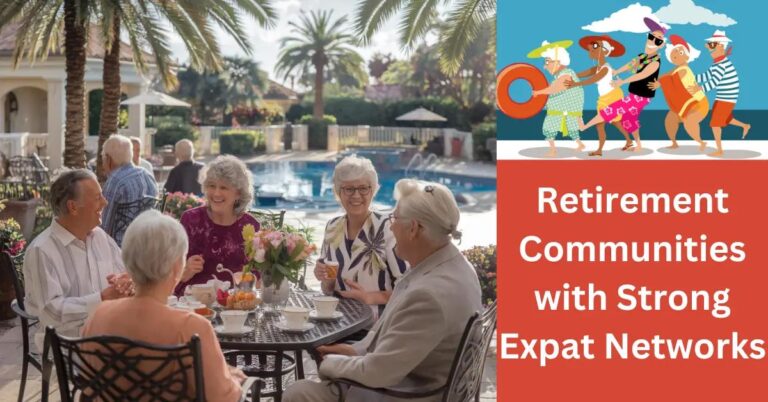TL;DR:
- Retirement communities with assisted living provide support with daily tasks and social activities, offering a balance between independence and care, unlike independent living (no assistance) and nursing homes (medical care).
- No specific age to move to assisted living; depends on personal needs.
- Assisted living costs vary (e.g., $4,000-$7,000/month in US regions); factors include location, care level, and service fees.
- Luxury retirement homes feature amenities like pools and spas, blending comfort with health care.
- Evaluate senior living by assessing location, reputation, care quality, and social opportunities.
- Trends in senior living include wellness programs, tech enhancements (smart homes, robots), and sustainability practices.
- Innovations aim to improve senior living quality and provide a supportive environment for healthy, fulfilling aging.
Are you planning the next chapter of your life and considering a move? Retirement communities that offer assisted living services might be the right choice for you. These communities provide more than just a place to live; they offer a supportive environment with various assistance options, perfectly balancing independence and care. But how do they compare with other elderly care options? Let's explore the definitions, benefits, and the perfect time to transition.
What Are Retirement Communities with Assisted Living Services and How Do They Differ from Other Elderly Care Options?
Retirement communities with assisted living services are places where seniors live and get help with daily tasks. These tasks might include meals, bathing, or medication. They also offer social events and activities. This type of community lets seniors stay independent while getting needed support.
Now, what makes these communities different from other options? Assisted living is not the same as independent living or nursing homes. In independent living, seniors live alone but have easy access to amenities and social events. There is no personal help with daily tasks because that's not included in these settings. On the other hand, nursing homes provide medical care for seniors who need constant attention. Assisted living fits in between these two options, offering both independence and help.
You might wonder, what are the benefits of choosing assisted living? One clear advantage is the sense of safety it offers. Seniors have someone to help with daily needs, but they still have their freedom. It's also a good chance to make friends and join activities. This social life can make a big difference in well-being.
So, when is the best age to move to assisted living? Precision demands a straightforward answer: there is no exact age. The decision depends on personal needs and circumstances. If daily tasks become too hard or safety becomes a worry, it might be time to think about assisted living.
Understanding these options helps families make the best choice for their loved ones. It's all about finding the right balance between independence and care.
How Can Seniors Find Affordable Housing and What Are the Cost Considerations?
Finding affordable housing for seniors can be tough, but it is possible. The cheapest way for a senior to live often involves public or non-profit housing. These options sometimes offer rent based on income. Also, consider shared housing with other seniors to split costs.
The cost of assisted living differs a lot depending on where you live. In Hamilton, assisted living communities cost around $4,000 to $6,000 each month. Meanwhile, in Massachusetts, the cost can range from $5,000 to $7,000 monthly. To help calculate these costs, a senior housing cost calculator can be handy. You input your budget and get an estimate of what you can afford.
Some key factors affect these costs. The size of your living space, location, and level of care you need all play big roles. Seniors might need more care as they age, which can raise costs. Also, added services like meals or health support increase monthly expenses.
However, there are ways to cut costs. Check if you can use government support programs. These might cover part of the cost. Some communities offer sliding scale fees based on income too.
Always compare various options and use calculators to make smart choices. They help you understand what you can afford without stress. Being informed helps you find a senior community that fits your budget and makes life easier.
What Amenities and Services Can Be Expected in Luxury Retirement Homes?
When exploring luxury retirement homes, many people wonder about the special features. These homes stand out due to their unique and high-end offerings. The best senior care facilities provide more than just a place to stay. They offer integrated retirement care solutions, blending comfort with health care support.
One of the standout aspects of luxury retirement settings is the range of amenities available. Expect large swimming pools, a relaxing spa, and exciting game rooms. These facilities provide a sense of luxury and leisure, making everyday life enjoyable.
Health-supportive retirement living is another key feature. Luxury communities often include fitness centers with personalized training. Residents benefit from nutrition programs that focus on healthy eating. These services help maintain both mental and physical well-being, which is vital as one ages.
Comparing these to traditional senior living facilities is an eye-opener. Many traditional places focus mainly on basic care. Luxury retirement complexes, on the other hand, prioritize wellness and lifestyle. This makes them popular choices for many retirees.
Understanding the vast differences in living environments aids in decision-making. Luxury retirement homes provide an enriching environment with varied activities for everyone. They promote both individual and community wellness. In contrast, traditional facilities might offer less in terms of personal growth or activities.
Choosing a retirement home is a big decision. It's essential to identify which environment suits your needs best. Whether it's the thrill of new activities or the simple pleasure of a comfortable home, luxurious options are worth exploring. They create a perfect blend of luxury, comfort, and senior care.
How to Evaluate and Choose Between Different Senior Living Communities?
When selecting the right assisted living facility, start by making a list. First, consider the location. Proximity to family and familiar places is crucial. Then, research the community's reputation and licensing at your state's health department site.
Ask yourself: What are the most important things for evaluating senior communities' benefits? Precision tells us this means looking at three main areas: care quality, social activities, and fees. Care quality involves staff training, available medical support, and resident-to-staff ratios. Social activities should include diverse and engaging options that match your loved one's interests.
Now, let's dive deeper into how to effectively compare senior living options. Visit potential communities and observe. Is the environment warm and inviting, or does it feel cold and institutional? Talk to staff and residents, listen closely to their experiences. Look out for happy faces and lively interactions—these often point to a healthy environment.
When evaluating senior living services, use resources like brochures and online reviews. They offer insights but also visit in person for a firsthand perspective. Assessing senior care facilities requires a detailed checklist. Include factors like cleanliness, room dimensions, safety features, and meal quality.
Lastly, remember that your intuition matters. How do you feel in each place? After all, this will be your loved one's new home. Prioritize their happiness and comfort. Making these choices isn't easy but with good groundwork, it's possible.
What Are the Trends and Innovations in Senior Living?
The world of senior living is changing fast. What are the current trends shaping the future of senior living? Many communities now focus on innovative retirement care models. These models help seniors live fuller lives with ease.
A big trend is in comprehensive wellness for seniors. What does this mean? It means focusing on both mind and body health. More communities offer yoga classes, art workshops, and gardens for relaxing.
Emerging technologies also play a huge role. Robots can assist with daily tasks. Smart home features like lights and thermostats help keep seniors safe and comfy. These make senior living more advanced and easier.
But technology is not the only focus. Sustainable and environmentally-friendly practices are key. Many communities now use green energy. They recycle and grow their own food. Such practices also save costs and benefit the planet.
Innovations continue to reshape community life. Advanced living solutions for elder care make it easier for seniors to stay connected and active. More options mean that every senior can find a place that suits their needs.
Industry trends for senior living are always evolving. Each trend aims to improve the quality of life for seniors. This can mean more choices, better care, and a supportive atmosphere. Staying informed can help you choose the right senior living community for your needs or those of a loved one.
Overall, these trends ensure that senior living keeps getting better. With new technologies and a focus on wellness, these communities are more than just places to live. They are places to thrive.
Conclusion
Choosing the right retirement community depends on your needs and lifestyle. We've covered how retirement communities offer assisted living, better than other elderly care options. Learn the benefits, ideal transition age, and cost-saving strategies for seniors. With these insights, you can find the best senior living facility. Luxury retirement homes and innovative trends offer amazing solutions. Prioritize your needs, assess options, and make informed decisions. Backup your choice with personal visits. Whether for you or a loved one, this choice matters. Make it wisely.







